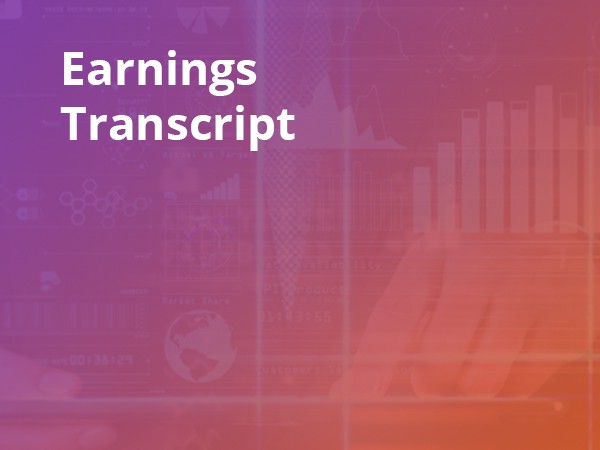Since its inception, the global financial system has evolved to manage increasing complexity with greater efficiency whilst its fundamental role as facilitator of Pareto-efficient resource allocation has remained intact. So successful has finance been in allocating resources that it has become a primary driver in the creation of negative externalities –- particularly environmental degradation — which pose a significant risk to future economic and social development.
This blog post presents an advanced framework for seamlessly integrating “augmented intelligence” into investment decision-making processes. By leveraging a symbiotic relationship between human intelligence, artificial intelligence (AI), and sustainability, augmented intelligence seeks to redefine investment management paradigms.
What is the Purpose of Financial Markets?
Financial markets are complex adaptive systems (Lo, 2004). Their essential purpose consists of facilitating an efficient allocation of resources among their participants (Mishkin, 2018; Ross & Westerfield, 2016; Fabozzi & Modigliani, 2009). This purpose has not changed since Luca Pacioli introduced double-entry bookkeeping in 1494, the first stock exchange was launched in Amsterdam in 1602, or the interpretation of efficient allocations became standardized and scalable through Harry Markowitz et al. in 1952.
What has changed throughout financial market history is the degree of complexity participants have had to master to achieve an efficient allocation. This degree of complexity is determined by the scope of the system and the dynamics within it.
Humanity has extended the scope of factors to be considered for an efficient allocation decision over time. Financialization, globalization, and digitization have been dominant drivers in this extension of scope. Today, market participants can allocate their resources across a global capital stock of $795.7 trillion (Vacchino, Periasamy, & Schuller, 2024), which is unprecedented in human history.
To master the increased dynamics within the system with its widened scope, market participants have had to adapt their interactions, evolving their traditional belief systems about markets to apply more insightful assessment techniques that seek to understand market complexity.
This shift has led to a focus on which behaviors best contribute to integrating different sources of evidence into decisions at the point of allocation. Reasoning has morphed from deductive to inductive (Schuller, Mousavi, & Gadzinski, 2018), leading to an ever more accurate assessment of the dynamics within the financial system.
Complex systems produce emergent phenomena, properties that can only be studied at a higher level. The intricate, non-linear interactions between the components of complex systems give rise to new, often unexpected properties or behaviors that cannot be explained simply by examining the system’s individual parts. Emergence is thus a natural consequence of complexity, where the whole becomes more than the sum of its parts.
A primary emergent property in the history of financial markets is the dominance of humankind over nature, which came to the fore following the Scientific Revolution in the late 15th century. This dominance has led to an unprecedented density of breakthroughs by humankind, equipping itself with ever more refined and scalable tools to master complexity.

Mastering Planetary Time Through Financial Systems
As is common for complex adaptive systems, what started as a side effect — a negative externality — has turned into a dominant factor influencing the system. Currently, the financial system is learning how to integrate factors beyond a human-centered worldview. We have entered an era when time is no longer differentially distributed along human and non-human scales.
Planetary Time represents the synchronization of human and ecological temporalities, a concept essential for addressing climate change and resource exploitation. As facilitators of capital flow, financial markets are uniquely positioned to drive this synchronization. This requires a paradigm shift from short-term profit maximization to sustainable, long-term value creation.
With the necessity for humankind to reintegrate into the homeostasis of planet Earth, the purpose of financial systems — namely facilitating an efficient allocation of resources among its participants — is set in a new context. This leads to the question of how to design a financial system that adopts augmented intelligence (AI, human intelligence, and sustainability) to master the era of planetary time? Academia and practitioners are treating these three elements in silos and is acting too slowly to break through those walls to integrate them into a holistic decision design. What is the status quo for each silo?
Human Intelligence in Investment Management
Over the past 40 years, behavioral finance has advocated for evidence-based decision-making. We now know significantly more about the quantity of biases and why we tend to make investment decisions full of noise and bias. We have not done enough to help participants in the global financial ecosystem bridge the knowing-doing gap, however, which is essential for accelerating the diffusion of innovation. Either professional investors tend to talk more about behavioral finance than make use of its insights, or debiasing cognitive biases only has a temporary effect (Gadzinski, Mousavi, & Schuller, 2022).
What has become more prominent academically is the focus on applied behavioral considerations, such as behavioral design configurations. The intent is not only to raise awareness of cognitive dissonances and their effects, but also to make it easier for decision-makers to improve such configurations with low cognitive effort.
Awareness training has proven to be ineffective because it is too superficial in its impulse to facilitate behavioral change (Fleming, 2023). Alternatively, high-performance principles for designing an investment decision support system that produces evidence-based decisions are increasingly being explored (Schuller, 2021).
Sustainability in Investment Management
Sustainability considerations in the financial system are a possible gateway for augmented intelligence to create the impact in the real economy that is needed to reintegrate humankind into the homeostasis with planet Earth. These considerations have a long, though not critically impactful, history in finance.
Many investment leaders recently have embraced sustainable development goals (SDG)-driven investing as a must have for the practice of good investment management. The road to necessity has taken decades to build (Townsend, 2020). However, a compliance-driven approach often relegates sustainability to administrative burdens rather than core investment strategies.
What policymakers and regulators have only recently accepted is their inability to be the primary driver to initiate, facilitate, and incentivize the direction of capital deployment towards making SDGs achievable. The actual redeployment of capital at scale must be done by market participants themselves, by creating value for stakeholders through an evidence-based assessment of the opportunity set in the risk/return profile. This translates into scale when front office specialists are incentivized to search for opportunities that generate more profits due to their sustainability.
Third-Generation Asset Allocation
The current state of investment management falls short of achieving the necessary seamless integration of augmented intelligence into investment decision designs because it addresses its components in a fragmented manner, both academically and in practice.
Traditional asset allocation models, rooted in static optimization and linear extrapolation, are increasingly inadequate in the face of complex and dynamic market conditions. Third-generation asset allocation techniques, informed by Andrew Lo’s adaptive markets hypothesis (AMH), emphasize causal, inductive, and adaptive methodologies. These approaches align with the principles of augmented intelligence, offering a framework for integrating sustainability into portfolio construction.
Unlike first- and second-generation models, which prioritized forecasting and discounting future values, third-generation techniques focus on real-time causal analysis. By incorporating evidence-based assessments and advanced AI tools, these models enable investment professionals to navigate uncertainty and complexity significantly more effectively.
In short, this new generation allows for the creation of investment decision support systems that are adaptive, inductive, causal, and prospective in their quest for rational decisions. As such, they invert the traditional modeling approach of reality follows model to model follows reality.
Implications for Investment Professionals
The transition to augmented intelligence through third-generation asset allocation methods requires a cultural shift within the investment management industry. This shift includes breaking down silos between academia, regulatory bodies, and industry practices. Investment teams must prioritize cognitive augmentation, leveraging AI tools to enhance decision-making processes while maintaining a human-centric approach.
Moreover, the industry’s slow adaptability must be addressed through targeted training, regulatory incentives, and the development of comprehensive investment decision support systems. These systems should integrate human and artificial intelligence to optimize capital allocation in alignment with planetary time.
Key Takeaways
The question for stakeholders in the global financial system is: How can we design a financial system that integrates AI with human intelligence to establish augmented intelligence and master the era of planetary time?
Conceptual and practical silos will need to be broken down. The third generation of asset allocation techniques is young but already lays the foundation for what such a symbiotic relationship might look like.
The next step for our industry is to conceptualize investment decision support systems based on a framework of third-generation principles.
Onwards and upwards.

























